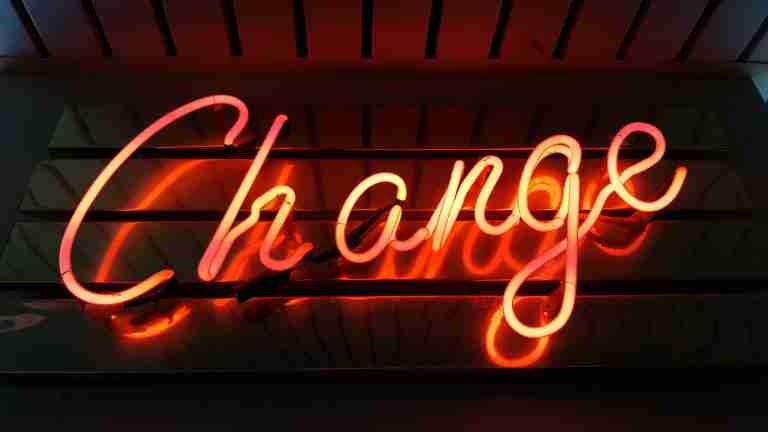How to retire early with little money UK. 9 things you need to do to retire early.
How to retire early with little money UK might well become a common question as people realise, they have little money but are also tired of the 9 to 5.
One of the best ways to retire early with little money is to save as much as possible and invest wisely. Living below your means will help create spare cash. In addition, be sure to invest in productive assets like shares, property and businesses, as these are the way to grow your money and create multiple income sources.
Let’s face it; it’s not uncommon to reach your 40s and think;
“What another 25 years of this before I can retire!”
So if you want to retire at all, let alone do it early with little money, you will need to undertake a few straightforward actions sooner than later.
Read on to hear about the 9 things you need to do so that you can figure out how to retire with little money UK.

What does early retirement mean?
Retirement generally means not needing to work anymore because you are now financially independent.
You have enough money coming in, traditionally from a pension, that you no longer need to work if you don’t want to.
Your pension would traditionally come from what you have saved over the years into a work or private pension and any additional pension you get from the state.
Hopefully, fingers crossed, these pensions add up to a comfortable lifestyle, whatever that means to you.
Early retirement would mean any time before you get your state pension. This would mean you are becoming work free before 65 in the UK.

What do I need to be financially independent?
To be financially independent, you need to have one or more income sources that replace your 9 to 5 income, i.e., money comes in from one or more sources that don’t require you to show up to work x hours to earn it.
If you were financially independent, work would likely have become optional, meaning you didn’t have to work for anyone anymore. You are no longer dependent on paid work.
Factors that would help you become financially independent would be:
- Paying off your debt.
- Mortgage-free or pretty close
- Enough income to make work optional, cover your basic needs and a few wants as you feel necessary.
- An emergency fund or funds to ride out the rough parts of life.
To get these things done or well underway will require you setting some clear goals and figuring out your process to reach them.
And no, what got you here is unlikely to get you there anytime soon.
Know your lifestyle costs.
What does it cost for you to live? Do you know?
How much are the costs of your basic needs like food, utilities, clothes, transport and accommodation?
Without knowing this, you have no idea what your baseline is.
On top of this, what are your luxuries or wants? What are the things you buy that keep you alive and add fun, joy, and excitement to life?
These might be.
- Hobbies and passions
- Travel, holidays and adventures
- Gadgets, clothes and other toys
- Nights out for food, drink and dancing
- Gifts for others
- Fitness and exercise
- Entertainment, arts, theatres, cinemas, subscriptions to sheds monthly etc
Knowing the difference between needs and wants is an essential part of figuring out where all your money is going if you could make any changes and how this might change your current lifestyle.
More importantly, it might well tell you where you need to make changes to reach your desired lifestyle.
You could get yourself a budgeting app to track it all for you, or you could do it for yourself old school with pen and paper.
The Japanese Kakeibo system of budgeting is a way to plan and track what’s going on.
It requires two notebooks
- To plan out the month assign where you want your money to go
- To track your day to day spending
At the end of the month, you review how it all went. Where you think it went well, and where improvements might be needed next month.
I know that your thinking, “that sounds suspiciously like a budget?”
Call it what you like, budget, spending plan or priorities; any method of knowing what’s going on is a crucial component of early retirement.
It’s challenging to get somewhere if you don’t know where you are starting from or trying to get to
Work out where your money will come from
So if you retired early, you will need cash flow before you get access to the state pension (if you get access to a state pension).
So where is this money going to come from?
- Savings could come from your existing savings built up over the years before.
- Investments – maybe you have some stock market investments that throw off an income or that you can slowly cash in.
- Pensions could come from your personal or work pensions as you can usually access these 10 years before the state pension age, so between 55-57 depending on when you hit these ages.
- Property – maybe you own one or more properties that pay you a monthly income.
- Side hustles – you could have a side hustle selling stuff, renting stuff out, providing services or selling knowledge on or offline.
- Part-time work – you could, of course, still work!!! But part-time now just to keep some readies coming in.
- Anywhere else – inheritances?? Maybe something might leave you some money – but best not to count on this.
It’s going to be essential to figure out where your money will come from and how much is going from each source.
If it’s not going to be enough, you might need to work longer or create more assets that will pay you an income sooner than later.
Pay off your debts.
It’s going to be difficult to retire early or at all if you have significant debts.
Having your debts paid off is going to be a significant boost to your net worth and overall financial wellbeing. Not owing anyone any money is an excellent starter for financial wellness.
You might well have good or bad debt better to get rid of it, but there may be some priorities.
“Good” debt is usually money borrowed against an appreciating asset, i.e., a house or your education. These things should go up in value or add value to an existing asset –education can help you earn more money in the future, so a student load can be considered a good debt (I guess it might depend on what you studied, though)
“Bad” debt is any debt against a depreciating asset or expensive debt.
This is usually associated with borrowing on consumer items, gadgets, cars, clothes etc. Money borrowed through things like credit cards expensively, payday loans or some sort of hire purchase scheme.
This is debt with interest rates in the teens and above that will end up costing you far more money than the thing you borrowed cost – the thing/s that you bought that started losing value the second you bought it.
You have a few ways to pay off your debt asap
- The snowball method is finding the smallest, smashing it, and then moving to the next.
- The avalanche method is paying off the most expensive debt first and moving down the list.
- Paying them all off equally
With any debts, you have to make sure you make the minimum payments – if you just did this, it could take decades to pay them off – because if you don’t at least make the minimum payments, the charges will start racking up faster and faster, taking you further away from early retirement.
Pay off your mortgage.
Your mortgage is likely to be the most significant debt you have.
It may not be the most expensive in terms of interest rates but still likely to drag on for 25 years or more.
Having this paid off will be a significant freer of your cash flow.
If that’s right for you, overpaying your mortgage can be a way to pay it off a lot earlier than the set period. Just make sure you know your mortgage conditions that restrict if/how much you can overpay.
The advantages of overpaying your mortgage are that you will be reducing the amount of interest you pay back and reduce the tie it takes to be mortgage-free. Here is a mortgage overpayment calculator you can play around with.
The disadvantages of overpaying your mortgage are that that money has now been committed and can’t easily be accessed now. If your mortgage has a low-interest rate, you might think there are better places to get a return on your money.
However, you have to weigh up the guaranteed savings on the mortgage and the potential but not guaranteed opportunities to earn more elsewhere like the stock market.
Have a low cost of living.
Expensive tastes aren’t going to help your journey to early retirement, especially if you have little money to start with.
The more money you are shovelling out the door, the more you need to bring in from one source or another.
If you have expensive hobbies, gadget or lifestyle needs, this will be a drag on your finances and something that you are going to need to account for in any retirement plans.
In extreme cases, It might come down to the need to compromise on the expensive stuff or early retirement. Can you afford both?
The lower you can keep your fixed costs, the easier it will be for you to retire with little money.
Fixed costs are those that are more or less going to happen every month, and there is not much you can do about them – you might be able to lower them here or there, but you will still have them
- Accommodation costs
- Utilities, electricity, water, internet, gas, mobile phones
- Food
- Travel
- Taxes
- Clothes
If you can keep the above as low as possible through shopping for lower prices, lower cost of living areas, or just doing with less of them as appropriate (yep, you have to have a basic level of food), it will help keep these to a sustainable level.
Now for the luxuries. As hinted above, maybe there might need to be some trade-offs between your expensive tastes and early retirement. Which do you want most of the new gadgets or to retire earlier?
It’s an ongoing battle between what you want most and what you want right now.

Save as much as you can.
Yeah, obviously, I hear you say, but it’s not always that obvious to everyone.
The more you save, the more options you have, which includes one-day early retirement. The more you save also indicates what you can live off when you finish work as you are already modelling a modest lifestyle (whatever that means to you)
If you have a decent nest egg or savings balance and keep growing this, you can extend the amount of time you don’t need to work.
- One month’s savings = 1 month not needing to work
- 1 years savings = 1 year not needing to work
Part of the savings challenge is to try and maximise all the legal ways to reduce costs and tax but maximise free money opportunities.
Costs – keep your costs for everything as low as possible, including for services you buy. Can you haggle for mobile phones, internet and utilities?
Likewise, keep your fees for financial services like investing, platforms, and fund management fees as low as possible or very clear about what you’re paying for.
Make sure you are considering tax when you stash away your savings. Are they in tax-efficient rappers or accounts? In the UK, this is around ISA’s and pensions.
Workplace pensions – Free money, free money, I said free money. If you work at a company, they are likely offering a free money service – called a pension. You might want to look into that free money offer.
Create assets that will pay you (in your sleep)
“If you don’t find a way to make money while you sleep, you will work until you die.”
Warren Buffett
If you want to retire early with little money, you will need an income source either when you are asleep or awake.
This might come from your savings and investments throwing off dividends or capital growth that you can then spend.
This stash of money to live off has traditionally come from a pension, but if you want to retire early, you might not have that much in a pension account yet or be able to access it for a while.
But if you do have some investments, you will need to figure out a sustainable way to tap into them; otherwise, you will burn through them and be back at work in no time.
A standard method to tap into investments is using the 4% rule of thumb. If you have a globally diversified portfolio of stocks in low-cost index tracker/s withdrawing 4% each year has been shown to maintain your capital and allow ongoing withdrawals.
Other assets that could create an income in early retirement are rental properties paying you a regular income. Income which is also inflation-adjusted, i.e., you can keep your rents in line with inflation increases.
Intellectual property – no, this is not just about selling your ideas – some/most of your ideas are priceless worthless; it is those that you turn into something that might earn you an income.
- Could you self-publish a kindle book about your skills, experiences, or knowledge? It’s easier than you think and relatively inexpensive to give it a go.
- Know anything about apps or how to make one?
- Could you put together a guide on a particular subject or topic that people want to know about and sell this as a digital product or eBook?
- Instead of just watching YouTube or listening to podcasts, could you create your own on the things, places or subjects you love that others will want to watch and buy products on?
All these and other things could be assets you create to pay you an income now and later in life. The sooner you start building them, the sooner they can begin to work for you.
Have insurance to cover the worst.
The first thing here is your emergency fund.
3-6-or more months livings costs. Enough money so that if when something goes wrong, it doesn’t send you into a debt tailspin.
Common crisis an emergency fund will help with are
- Losing your job
- Car or house repairs
- Emergency medical needs
- Urgent travel needs.
- Anything that needs a lot of money every quickly.
Private insurance will also mitigate some of the worst impacts of going wrong.
- Life insurance covers you when life ends.
- Income protection for when you can’t work due to ill health.
- Critical illness in case you or someone gets seriously ill.
You might even get a few of these through your work so worth checking with your HR department.
Depending on your circumstances, the above can be inexpensive or more costly. Still, you have to ask yourself the alternative, i.e. if you didn’t have insurance and one or all of the above happened, how would you or those left behind cope?
If you insure your mobile phone, you have to think seriously about which will affect you and your family more, losing your phone or your life/health/income?
Check if and how your money will last if you retire early
As mentioned, you need to check what you expect life to cost and where this money will come from.
How will you draw down on the resources you have to last you throughout your retirement?
In steps, the 4% rule or the safe withdrawal rate. What rate of drawdown or eating your resources can your sources of income take?
Use or eat them to fast, and you will go broke very soon. Use or eat them to slow, and you might find you are more frugal than you need to be – which may not be that much fun either.
You will likely need to keep an eye on your investments and potentially make adjustments to take account of;
- Inflation going up or down.
- Investments going up and down.
- Rental income going up and down.
This is where ongoing planning, guidance and support would be a good idea to help you avoid the big mistake or to keep you and the stupid idea apart.
Bounce ideas off a trusted ear might well save you a lot in the long run.
How to retire early with no money UK: table
Here are a few steps on how to retire early with no money. Taking action on each of these will bring you closer to whatever retirement means to you.
| Steps | Description |
|---|---|
| Set Realistic Goals | Define what early retirement means for you, considering you have no money saved. Set realistic financial goals and determine the lifestyle adjustments needed. |
| Create a Financial Plan | Develop a financial plan that focuses on building a retirement fund from scratch, reducing expenses, and identifying potential income sources. |
| Maximize Pension Contributions | Even if starting with no money, contribute as much as possible to pension accounts once you have an income. Take advantage of tax reliefs. |
| Invest in an ISA | Open an Individual Savings Account (ISA) and make regular contributions. ISAs are tax-efficient and can be a good way to save for retirement. |
| Diversify Investments | As you start saving, diversify your investment portfolio. Consider speaking to a financial adviser for tailored investment advice. |
| Build an Emergency Fund | Save for an emergency fund to cover unexpected expenses. This is crucial when starting with no money. |
| Pay Off Debts | Focus on paying off any high-interest debts to avoid them eating into your savings. |
| Consider Additional Income Streams | Look for additional sources of income such as part-time jobs, freelance work, or a small business. |
| Live Frugally | Adopt a frugal lifestyle. Cut unnecessary expenses and find ways to save on daily expenses. |
| Keep Track and Adjust | Regularly review your financial plan and make necessary adjustments to stay on track for early retirement. |
| Understand Early Retirement Rules | Research the rules and implications of accessing your pension early in the UK, and plan accordingly. |
| Seek Government Assistance | Investigate government assistance programs that may be available for individuals with low income or no savings. |
FAQ: How to retire early UK
How to retire early with no money?
There are a few different ways to retire early with no money.
The first way is to save aggressively and invest in a solid retirement fund.
The second way is to make wise choices with your money and live below your means.
And the third way is to earn additional income through side hustles or investments.
No matter which route you take, starting planning for retirement as early as possible is important. The sooner you begin saving and investing, the more time your money will have to grow.
And don’t forget to consult with a financial planner to get personalized advice on how best to prepare for early retirement.
How to retire on very little money?
It is possible to retire on very little money, but it will require some thought and planning. Here are a few tips that can help you make ends meet:
First, consider your living expenses. If you can downsize your home or renting a room can free up some extra cash. Alternatively, consider getting a part-time job or starting a side business to supplement your income.
Second, be strategic about your retirement benefits. If you have a pension or other income sources, maximize them by claiming any benefits you’re entitled to.
Similarly, Senior health care costs can be a major expense in retirement, so it’s important to understand what coverage you need and how to get the best deal on it.
Finally, don’t forget about your hobbies and interests. Not only can they provide enjoyment in retirement, but many can also be monetized to help you bring in some extra cash.
From writing and web design to gardening and crafting, there are endless possibilities for ways to make money from your favourite pastimes.
How much do I need to save to retire early?
The answer to this question depends on several factors, including age, desired retirement lifestyle, and health status.
But as a general rule of thumb, you’ll need to save something like 25 times your yearly expenditure. This should be able to generate you an income you can live off.
Or
You must create passive income sources that replace your living costs, making work optional. This could be through rental properties or businesses.
Of course, the earlier you start saving, investing and creating additional sources of income, the sooner you will be able to retire!
Summary: How to retire early with little money UK
- Know your lifestyle costs – Needs vs wants
What’s it going to cost for the lifestyle you want
- Work out where your money will come from
What sources of income do you have or can you create to live off
- Pay off your debts
Debts will be a significant drag on your early retirement plans; better to have a plan to get rid of them asap.
- Pay off your mortgage
Probably your most significant debt. It’s likely to be easier to retire when it’s not around anymore
- Have a low cost of living.
The more it costs you to live, the more it will take you to cover that income in retirement.
- Save as much as you can beforehand
The more you have saved, the easier it will be to retire early as you already have the funds to live off when you’re not working anymore.
The more source of income you have, the more stable your early retirement will be. The more of your preretirement income you can replace with passive sources, the safer your retirement will be.
- Have insurance to cover the worst.
Your own and external safety nets will help prevent or mitigate any bumpy landings. An emergency fund and insurances will play a big part in keeping you afloat when life gets choppy.
- Check and keep checking that your money will not outlast you.
Need a Helping Hand with Your Finances? 🤝💰
If you’ve made it this far, congratulations! You’re already taking steps towards a healthier financial future. But maybe you’re feeling a bit overwhelmed. Maybe the thought of budgeting, saving, and investing still makes you break out in a cold sweat. Don’t worry, you’re not alone, and help is available.
At Financially Happy Money Coaching, I understand that money isn’t just about numbers. It’s about emotions, behaviours, and life choices. That’s why we’re here to help you take the stress out of money and build wealth in a way that aligns with your values and lifestyle.
Whether you’re just starting out on your financial journey or you’re looking to take your finances to the next level, we’re here to guide you every step of the way. I’ll help you understand your financial behaviours, set realistic goals, and create a personalized plan to achieve those goals.
So, why wait? Start your journey towards financial happiness today. Remember, the best time to start was yesterday. The second best time is now.
Click here to schedule your consultation and let’s make your money work for you, not vice versa. 💪💰
Remember, financial freedom isn’t a destination; it’s a journey. And every journey is easier when you have a guide. So, let’s embark on this journey together and create a financially happy future. 🚀💸







